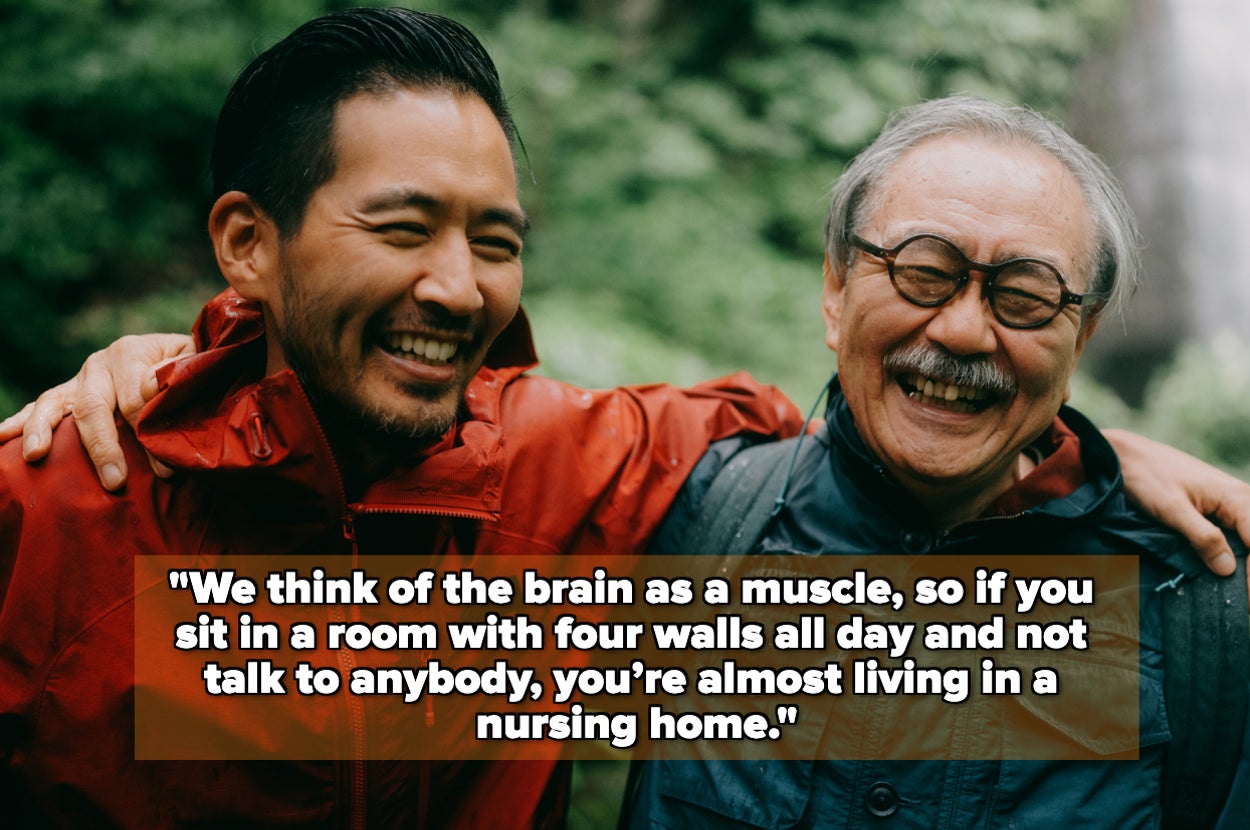By https://www.buzzfeed.com/about Jillian Wilson
When it comes to getting older, there are many factors that help you live a fulfilled, healthy life — ones that go beyond working out and eating your vegetables (although that’s part of it, too).
“Aging well, in my opinion, consists of three different components,” said Dr. Parul Goyal, a geriatrician at Vanderbilt Health in Nashville. These categories are physical health, emotional connection and mental support, Goyal said.
These elements come together to help you live a life that’s rewarding, lively and healthful. Doctors say there are lots of behaviors that contribute to your physical, emotional and mental health as you grow older, and some clear signs that you’re taking care of yourself in these ways.
Below, geriatricians share the indicators that someone is aging well, along with a little advice if you feel like you’re not hitting the mark.
You take time to learn new things.
The older we get, the fewer chances we have to absorb new information; many of us are far out of school or work. The opportunities to learn are limited if those opportunities aren’t sought out.
“We also look at their cognitive health in this … making sure that they are staying mentally strong, they are using their mind, they are engaging in exercises to stimulate their mind, which means they are learning like a new skill,” Goyal said.
She encourages her patients to learn something new, whether it’s a new game, exercise, language or musical instrument.
“That will help form new pathways in the brain so that they can continue to stay cognitively strong,” she said.
You’re honest about your needs.
“So often, people don’t age well because they’re not upfront about what their needs are,” said Robyn Golden, the associate vice president of social work and community health at Rush University Medical Center in Chicago. “How do we make it OK for people to say, ‘This is what I need, I’m feeling lonely, I need someone to go out with on a Tuesday night.’”
Rampant ageism makes it easy for people to feel like a burden or invisible, Golden said, which can encourage silent suffering. But it’s important to push against that and let folks know when you’re having a tough time. So if you’re someone who can share your thoughts and needs with your family and friends, that’s a good sign.
What’s more, if you’re struggling with depression and anxiety, it’s important to let your doctor know. There’s often a false belief that anxiety or depression after a certain age is more “normal,” but Golden said this is not true.
“Depression can be treated at any age, and not just with medication, with counseling, with group interventions, you name it. So, I think that’s part of how you age well, being open to being able to say, ‘This is who I am, this is what I need,’” she explained.
You have a community.
Loneliness and isolation are a big problem, so much so that the surgeon general of the United States declared an epidemic of isolation and loneliness throughout the country.
“As you know, with the COVID pandemic, this has become really important. There was a lot of social isolation among our geriatric patients because they were confined to their homes,” Goyal said.
To combat feelings of loneliness and isolation, it’s important to bolster your social connections, whether that’s with friends, family, your church group or your community, she said.
There isn’t one right way to connect with your community, either. Golden said this could look like anything from volunteering at a local food bank to helping a neighborhood child learn to read.
Socializing can help your brain health, too, said Dr. Lee Lindquist, the chief of geriatrics at Northwestern Medicine in Chicago.
“We think of the brain as a muscle, so if you sit in a room with four walls all day and not talk to anybody, you’re almost living in a nursing home … your brain is going to go to sludge because it’s not getting any stimulation,” Lindquist said.
Socializing, whether that’s talking to people in person or on the phone, interacting with folks on Zoom or joining a book club, is a way to exercise your brain and make it stronger, said Lindquist.
You prioritize your physical health.
